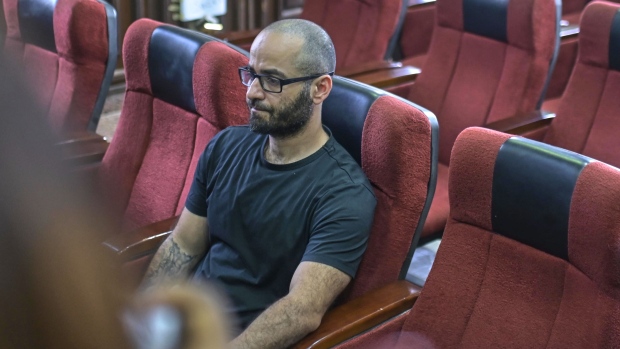Apr 4, 2024
Binance Executive’s Nigeria Case Is Adjourned Until April 19
, Bloomberg News

(Bloomberg) -- A Binance Holdings Ltd. executive detained for more than a month in Nigeria on tax evasion charges had his case adjourned until April 19 after his first appearance in court.
Tigran Gambaryan, head of financial crime compliance at Binance, was accused alongside the company of charges including non-payment of value-added-tax and corporate income tax, and complicity in aiding customers to evade taxes through its platform. He’ll remain in the custody of Nigeria’s Economic and Financial Crimes Commission.
Justice Emeka Nwite separately adjourned the hearing on the company until April 8.
The judge made the decision to adjourn Gambaryan’s case for longer after learning that he was seeing the charges for the first time on Thursday.
The prosecution said they had previously been unable to serve the charges because he was in the custody of a different federal agency — the Economic and Financial Crimes Commission. The charges were served in court.
One other Binance executive — Nadeem Anjarwalla — who was seized at the same time as Gambaryan, and has UK and Kenyan citizenship, fled the West African country last month. The two men had traveled to Nigeria late February at the invitation of the authorities to meet officials after the government blocked access to cryptocurrency channels amid a clampdown on currency speculation.
Many residents of Africa’s most-populous nation have flocked to cryptoassets amid a plunge in the value of the naira. That prompted a state crackdown on platforms offering digital tokens.
Central bank Governor Olayemi Cardoso in February alleged that Binance handled $26 billion in untraceable transactions, days before the two Binance executives were detained.
Binance, in a statement on X prior to the hearing, said Gambaryan held no decision-making power at the company and requested that he is “not held responsible while current discussions are ongoing between Binance and Nigerian government officials.”
Arguments centered around whether Binance can be served charges through its employee, Gambaryan.
Gambaryan’s counsel, Mark Mordi, argued that due process had not been followed and that his client had made it clear that he was not authorized to receive any charges on behalf of the company.
“The world is looking at us, let’s not treat this matter in a trifling matter,” Mordi said.
(Updates with more details from fourth paragraph.)
©2024 Bloomberg L.P.





